LGBTQ+ HISTORY MONTH

OCTOBER 5, 2023 VOL. 104 | NO. 8
STEFANIE HARPER/TECHNICIAN





Musical band AJ Lee & Blue Summit performed at IBMA Bluegrass Live at the Red Hat Amphitheater in Raleigh on Friday, Sept. 29, 2023. AJ Lee & Blue Summit is a band from California that specializes in bluegrass, Americana, country and folk music

TECHNICIANONLINE.COM 2 TECHNICIAN THURSDAY, OCTOBER 5, 2023 Contents IN THIS ISSUE: PHOTO OF THE WEEK page 13 SPORTS NC State volleyball notches historic win over No. 5 Louisville page 09 CULTURE Ten books to read this fall page 03 NEWS NC State becomes a JED campus page 08 NC State is entering its Victorian era OPINION THE RADAR Events to keep an eye on for the week of Oct. 5 HIP-HOP WITH JOSE VELASQUEZ Learn the basics of hip-hop at this beginner-friendly dance class. Thursday, Oct. 5, 5:30-6:45 p.m. WELLNESS AND RECREATION CARMICHAEL GYM, DANCE STUDIO 2307 Free WKNC’S LOCAL LUNCH LIVE Grab a bite to eat and listen to local tunes at WKNC’s local lunch. Wednesday, Oct. 11, Noon to 1 p.m. THE CORNER Free VINTAGE BY THE PACK Shop with Campus Thrift Store and expand your vintage clothing collection. Thursday, Oct. 5, 11 a.m. to 5 p.m. STAFFORD COMMONS Free NC STATE LIVE PRESENTS GASPARD & DANCERS Join NC State LIVE for North Carolinabased Gaspard & Dancers movement performance. Thursday, Oct. 5, 7:30 p.m. TALLEY STUDENT UNION, STEWART THEATRE Purchase Tickets Technician (USPS 455-050) is the largest student newspaper of NC State University and is published every Thursday throughout the academic year from August through May except during holidays and examination periods. Opinions expressed in the columns, cartoons, photo illustrations and letters that appear on the Technician’s pages are the views of the individual writers and cartoonists. As a public forum for student expression, the students determine the content of the publication without prior review. To receive permission for reproduction, please write the editor. Subscription cost is $100 per year. A single copy is free to all students, faculty, staff and visitors to campus. Additional copies are $0.25 each. Printed by Triangle Web Printing, Durham, NC, Copyright 2022 by North Carolina State Student Media. All rights reserved. 323 Witherspoon Student Center, NCSU Campus Box 7318, Raleigh, NC 27695 Editorial 919-515-5017 Advertising 919-515-2411 Fax 919-515-5133 Online technicianonline.com FRONT COVER BY ETHAN RIMOLT BACK COVER BY LILY MCCABE Editors-in-Chief Ethan Bakogiannis Jameson Wolf technician-editor@ncsu.edu Managing Editor/Brand Manager Emily Vespa technician-managingeditor@ncsu.edu Copy Desk Chief Rachelle Hernandez technician-copydesk@ncsu.edu Assistant Copy Desk Chief Elliot Johnson News Editor Kate Denning technician-news@ncsu.edu Assistant News Editors Ally Tennant Amelia Russell Culture Editors Emilia Rivadeneira Elizabeth Dull technician-features@ncsu.edu Design Editor Ellie Bruno technician-design@ncsu.edu Assistant Design Editor Carter McDermott Opinion Editor Justin Welch technician-opinion@ncsu.edu Assistant Opinion Editor Skye
Focused Editor Koen
Sports Editor Jenna Cuniowski
Assistant Sports Editors Erin
Noah
Photo Editor Ethan
Video Editor
Assistant Video Editor Katherine
General Manager Garrett
Crawford
Rodabaugh technician-opinion@ncsu.edu
technician-sports@ncsu.edu
Ferrare
Teague
Rimolt technician-photo@ncsu.edu
Isaac Hernandez technician-video@ncsu.edu
Wan
Gough media-sales@ncsu.edu
NC State becomes a JED campus
Riya Kannan Correspondent
Editor’s Note: This article contains references to mental health issues and suicide.
NC State has partnered with The Jed Foundation, a nonprofit organization that aims to protect mental and emotional health and prevent suicide in teenagers and young adults.
Monica Osburn, executive director of NC State’s Counseling Center, said at the university level, JED assesses the systems in place on campus that address mental wellness and makes strategic recommendations to better these programs and equip universities with the resources they need to support students properly.
“The JED Campus program is an outside set of eyes that will look at what we do here at NC State, give us an honest assessment of the programs that we have in place and make recommendations for what we could do further, what we should keep and maybe what we should tweak,” Osburn said.
The Jed Foundation has existed for over two decades but has not had a presence on NC State’s campus until now.

Student Government and the Student Mental Health Task Force advocated to bring the JED Campus program to NC State. In 2022, the Student Senate introduced and passed R 58: Campus Suicide Prevention and Response Act.
The combination of the passing of R 58 and similar recommendations during this time from the Student Mental Health Task Force provided the proper context to bring The Jed Foundation to NC State’s campus.
“I think the time was right,” Osburn said. “It was something that Student Government was very interested in and
advocating for, and it’s something that I’ve advocated for out of the Mental Health Task Force. JED is also partnering with the UNC system to have this occur in several of the UNC system schools, so I think a lot of things came together at one time to really make the timing right because it’s a big undertaking.”
The JED Campus program outlines an incremental four-year comprehensive plan for the University that assesses, plans, implements and evaluates systems in place to address and support student wellness. The program — which is composed of an assessment, strategic planning, implementation, evaluation and sustainability phase — has begun and will continue through spring of 2027.
The current assessment phase of the program involves the email distribution
CONTRIBUTED BY WIKIMEDIA COMMONS
of a “Healthy Minds Survey” to select students. Around 12,000 students received this email and are urged to complete the survey as soon as possible.
Timothy Reid, a fourth-year studying business administration and student body president, discussed the importance of the assessment period and explained how the process will affect the University.
“The survey will help us figure out what’s working, what’s not, and it’ll help JED figure out what we need by analyzing where students are right now, so it’s really crucial,” Reid said.
Despite the length of the full implementation of this program, Reid said he believes the University will see its effects soon.
“It will be a long-term process, especially to see full effects, but incremental effects
will definitely be seen throughout the process,” Reid said. “They’re assessing right now and will be making recommendations soon, so we’ll start to see some of that.”
Reid said the presence of The Jed Foundation on campus is necessary to further the mission of housing a better system to address the mental and emotional needs of students.
“JED is just perfect for what we need right now,” Reid said. “Coming off of last year and considering the mental health crisis, we just needed an outside perspective, and JED is giving us just that.”
Along with JED, NC State is currently engaging in other initiatives to improve mental health on campus and follow recommendations set forth by the Student Mental Health Task Force.
“One of the advantages of being at such a big university like NC State is the access to resources and support on campus, and I’m really proud of the work we’ve done in terms of expanding counseling services,” Reid said. “We now have over 50 counselors available and assigned to specific schools, which is a great improvement.”
New first-year student senators speak on goals
Riya Kannan Correspondent
Ten newly-elected first-year senators were announced at the Student Government election reveal party, where they spoke on their campaign goals. These issues ranged from safety to the expansion of mental health care and studentsupporting resources.
Maria Echeverry Montano, chair of the Student Government Board of Elections and a fourth-year studying political science, said this year’s first-year senate election saw a record number of student votes. This year, 24 candidates formally entered the race and 19 remained
throughout.
Alisha Khan, a first-year senator studying biology, said she was motivated to run to advocate for a safer campus.
“We got a lot of WolfAlerts the first few weeks of school, which encouraged me to run,” Khan said. “Also, whenever I walk back from the library late at night, I always feel really scared walking through the Brickyard. So I was thinking someone should do something about this. And then I decided I’d just do something about it.”
Jon Carter, a first-year senator studying accounting, said the major pillars of his campaign were reducing stigma around mental health and enhancing financial
literacy resources.

“I’m very interested in increasing financial literacy resources on campus because I know that’s something that’s not super available,” Carter said. “I’m working, hopefully with the treasurer, to create a financial literacy class for first-year students to take.”
Lance Williams, a first-year senator studying agricultural science, said he hopes to increase student engagement.
“One of the biggest things I want to focus on this semester is allowing and encouraging first-year students to get more involved on campus,” Williams said. “I think Student Government absolutely has the potential to help increase the
number of students getting involved in different clubs and organizations, which definitely plays into students finding a sense of belonging and mental health care on campus as well.”
Zach Eddinger, a first-year senator studying political science, said he wants to gauge student interests and make his next steps accordingly.
“I plan to do some type of polling,” Eddinger said. “I want to do some kind of random sample polling of first-year students to figure out what we want. I’ll work from there.”
SENATORS continued page 4
TECHNICIANONLINE.COM TECHNICIAN 3 THURSDAY, OCTOBER 5, 2023 News
More information about recommendations made by the Student Mental Health Task Force can be found by scanning the above QR code.
Counseling Center, Prevention Services work to enhance drop-in counseling programs
Campbell Depken Correspondent
Editor’s Note: This article contains references to mental health issues and suicide.
The NC State Counseling Center and Prevention Services provide mental health resources on campus, but utilizing them can be intimidating. To make their services more accessible to students, both the Counseling Center and Prevention Services are offering a variety of drop-in programs that give students a way to engage with the organizations in a low-commitment way.
Randolph Brooks, the assistant director for diversity and outreach for the Counseling Center, is involved in managing the drop-in spaces for the Counseling Center. The Counseling Center offers drop-in spaces through its embedded counseling services, which attach a counselor to each college, as well as its “Let’s Talk” program.
“[Drop-in spaces] are a casual, non-committal way to engage in a variety of experiences that allow you to find connections and support,” Brooks said. “It’s not a confidential space, so people can come and go. It’s a way to find out what therapy is about.”
Prevention Services also offers drop-in programs, many in partnership with other NC State organizations. Angel Bowers, the director of Prevention Services, said drop-in spaces offer a range of opportunities for mental health support.
“If a student attends, the great thing is they don’t have to sign up,” Bowers said. “They don’t have to register. So it’s really this open-ended experience. They will vary; some of [the spaces], it’s going to be more experiential, you will be working with plants, you will be doing mindful eating, you will be engaging in a nature walk, … and then others are going a bit more conversation based.”
Both the Counseling Center and Prevention Services offer low-commitment, open spaces for students to engage with staff from both organizations as well as other students. However, the spaces differ slightly in their purposes.
For Prevention Services, the mission around its drop-in spaces focuses on connection.
“Maybe four years ago, three years ago, the University did a study to determine what were the greatest needs of
students as far as improving just general happiness, wellness and the overall satisfaction with their college experience, and what they came up with was connection,” Bowers said. “So we specifically took that research and created these groups as a way for folks to make connections.”
The Counseling Center’s drop-in sessions, specifically in the embedded counseling program, aim to allow students the chance to learn more about counseling.
Currently, nine out of the 11 colleges at NC State have embedded counselors, and the Counseling Center plans to embed a counselor in every college. All of the embedded counselors have drop-in hours in a program-related academic building that offer a semi-private, non-confidential space for students to access a counselor without an appointment.
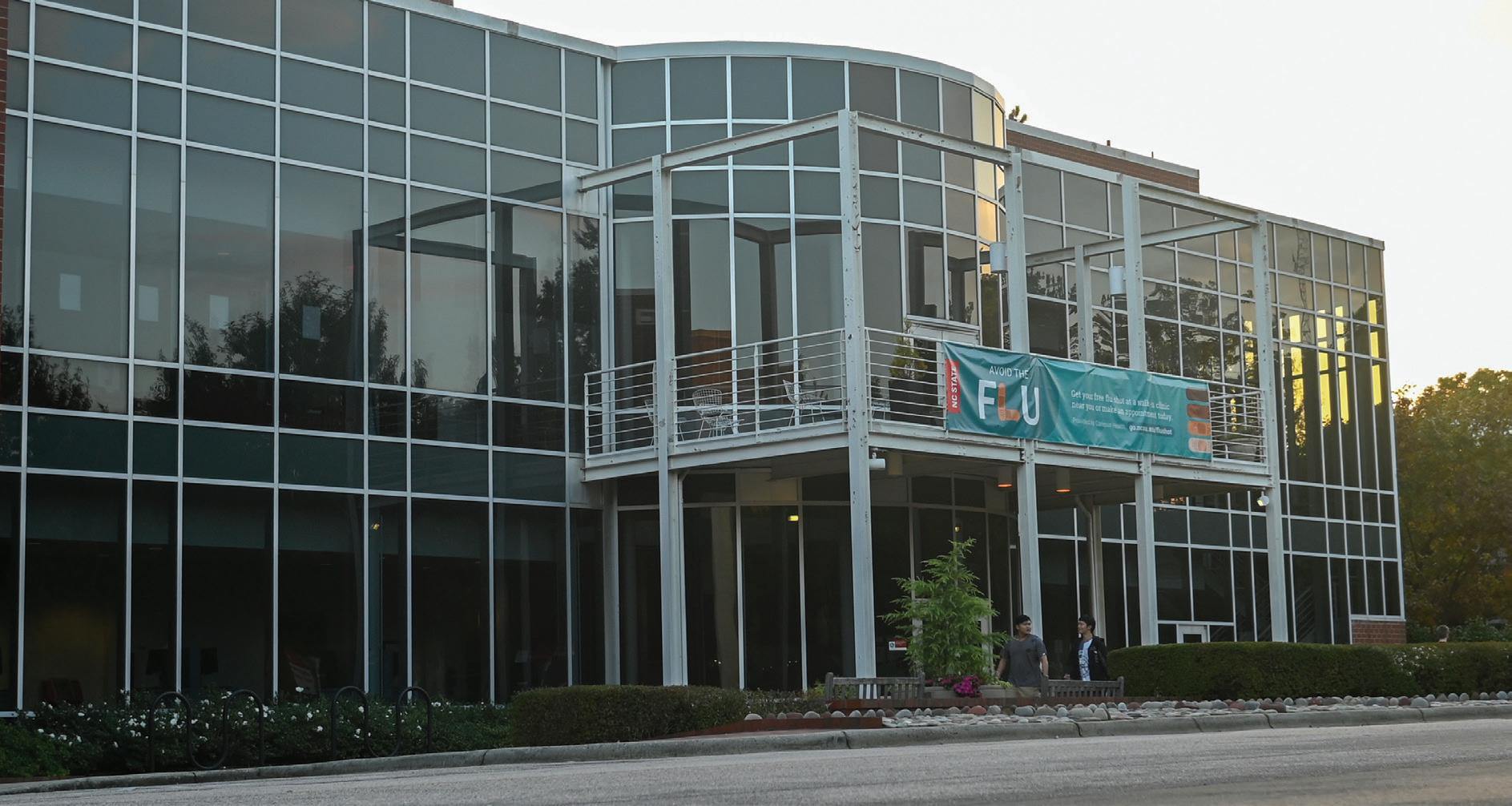
Depending on the number of attendees, a drop-in may look like a one-on-one session or grow into a group conversation. Students can use the drop-in spaces to talk about a bad day, to learn more about how to access more counseling
SENATORS
continued from page 3
resources on campus or to meet a counselor.
“The idea is that we have these sorts of spaces all over campus for the same reason: You can talk to a counselor without an appointment, without coming to the Counseling Center,” Brooks said. “For a lot of our students, they have no experience with counseling of any sorts, … so it’s a way of dipping your toe in. A lot of our students, they seem to respond well to this structure.”
Prevention Services has similar goals with its more conversation-based drop-in spaces, such as its Grief and Loss Support Space that takes place weekly.
“Right now, the Counseling Center has a group that, again, it’s a commitment, you have to come every week,” Bowers said. “But this is an open space where students can kind of stick their foot in the water, and try it out, see if this is the right fit for them.”
For more information on upcoming drop-in spaces, visit https://prevention.dasa.ncsu.edu/drop-in-spaces/
Echeverry Montano said first-year senators are vital to representing student interests.
“First-years provide a perspective in the Senate that we don’t have anymore,” Echeverry Montano said. “I haven’t lived in an on-campus residence hall since my sophomore year, so I can’t say that I can fully speak to the issues that are affecting firstyears. Having first-years in Student Government in general not only diversifies our opinions and the way that we think about issues, but it provides another perspective to issues we really need.”
Listed below are the winning candidates of the Student Senate first-year senator election.
Taquan Dewberry Lalith Nandula
Alisha Khan Zach Eddinger
Jon Carter Delaney Urchuk
Nicole Tan Max Furr
Julia Kalinina Lance Williams
First-year senators will attend biweekly Student Senate meetings, which are open to the public and take place in Talley 4140 on Wednesdays at 7:30 p.m.
More information about Senate meetings can be found at https://orgs.ncsu.edu/studentgovt/legislative/meetings/

TECHNICIANONLINE.COM 4 TECHNICIAN THURSDAY, OCTOBER 5, 2023 News
JERMAINE HUDSON/ARCHIVE
In this Archive photo taken on Feb. 1, 2023, Marlee Charlton, the chief justice for the student senate, speaks during the student senate meeting in Talley Student Union. The 102nd session student senate was composed of 72 students that represent each school and college at NC State.
ETHAN RIMOLT/TECHNICIAN
Campus health pictured on the corner of Cates Avenue and Dan Allen Drive on Tuesday, Oct. 3, 2023. Campus Health provides a variety of resources for students, faculty and staff to use.
A student’s guide to the athletics ticket lottery
When the NC State football team has a home game, Carter-Finley Stadium is the place to be. Airplanes fly overhead, fireworks soar into the sky and fans cheer on the Pack — though many students are left out of the fun.
There are more students who want to watch NC State football than there are tickets available. How the sought-after tickets are distributed is determined by the Student Ticket Advisory Committee.

The committee consists of five members of the student body, as well as four University staff members. One of those members is Catherine Carter, a fourthyear studying political science and the student body director of athletics.
“Football and men’s basketball tickets are based on a weighted lottery system,” Carter said. “Freshmen start with three points, sophomores with five points, juniors with seven points and seniors with nine points each year.”
Those who collected a particularly large number of loyalty points last year receive up to three student loyalty points in the new semester. However, this only applies to a small number of students. Students had to have between 32.5 and 37 loyalty points last year to receive one extra loyalty point this year.
From there, students get one point when they attend a football game. Anyone who gets a ticket and does not go to the game is deducted a loyalty point.
“If you can’t go, you should return your ticket,” Carter said. “It’s really easy, and that way, somebody else can go, too.”
This function is available on the student ticket website under the My Tickets section. If students don’t receive a ticket on the first round, they can try again during the redistribution period when returned tickets are distributed.
Carter said it’s generally better to start requesting tickets early in the season rather than waiting for the UNC-Chapel Hill game to request a ticket for the first time. Additionally, students can earn an additional loyalty point by scanning a ticket at least 45 minutes before the start of the game.
If a student’s ticket is scanned incorrectly, they may wrongly lose a loyalty point. Carter said tickets can get incorrectly scanned during big rushes of students entering the stadium right before the game. Carter said if students have incorrectly lost a point, they can reach out to her and her team.
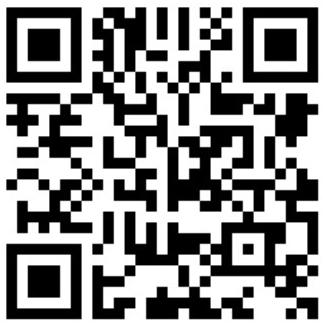
Carter also said she urges students not to sell their student tickets. She said this is a violation of student conduct, and if students are caught, their ability to request a ticket will be revoked for the year.
It can be difficult for people with few loyalty points to get tickets to football and men’s basketball games, making it difficult to earn loyalty points.
In the lottery, students with the most loyalty points receive the first 25% of the student ticket allotment. A weighted lottery dictates who receives the remaining 75%.
Student government selects one game from each Olympic sport every year that students can earn a loyalty point for attending. This gives first- and second-year students who start the year with fewer points extra chances to earn points. Students can find information on those select games at gopack.com.
“All you do is you show up, and we’ll scan your student ID,” Carter said. “You don’t even have to register for those games.”
The Student Wolfpack Club offers another option for securing tickets. Out of the 10,000 student football tickets, up to 601 seats are reserved for the band, and up to 779 are reserved for members of the Student Wolfpack Club.
Maggie Nichols, a third-year studying accounting and president of the Student
Wolfpack Club, said the club supports non-revenue athletics teams on campus such as soccer, volleyball and baseball.
“We pick a handful of every sport to go to during the season,” Nichols said. “That’s how you earn points toward your Student Wolfpack Club account and then we award football and men’s basketball [tickets] based off of these points from those events.”
Nichols said 2,000 to 3,000 Student Wolfpack Club members typically apply for the 779 Student Wolfpack Club football tickets.
The major difference between the Student Wolfpack Club system and the regular online student ticket distribution is that the time members spend at selected non-revenue games factors into the number of Student Wolfpack Club points they earn. Students who stay longer at games are more likely to receive a ticket.
Additionally, Student Wolfpack Club members get an extra half of a student loyalty point. Hannah Harrison, a fourth-year studying elementary education, said she usually receives her tickets through the Student Wolfpack Club system, although the extra points help if
she requests a ticket.
“A half point may not sound like it makes a difference, but it does,” Harrison said.
The Student Wolfpack Club ticket registration opens earlier than the normal online ticket distribution, so if a member doesn’t get a ticket through the Student Wolfpack Club, they can still try through the regular student lottery system.
Student Wolfpack Club membership costs students $30 per semester or $100 for four years.
TECHNICIANONLINE.COM TECHNICIAN 5 THURSDAY, OCTOBER 5, 2023 News
PHOTO ILLUSTRATION BY MOLLIE MITCHELL/ARCHIVE
Bastian Hauser Correspondent
More information about Student Wolfpack Club membership can be found by scanning the above QR code.
Queer Journeys: You don’t need labels to understand yourself
Skye Crawford Assistant Opinion Editor
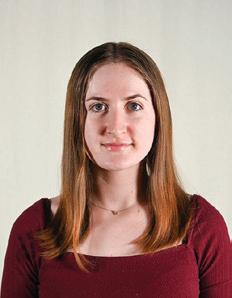
In sixth grade, my thenbest friend told me her parents wouldn’t let her be friends with me if I was gay. She told me this in the wake of several girls in our grade coming out as lesbian. I ignorantly responded with something like, “Good thing you don’t have to worry about that.”
Back then, I was trapped in the dichotomy of straight and gay. There was no in between, and this mindset was comforting for a while because if I wasn’t attracted to girls, then I was strictly attracted to boys, right? Wrong.
I knew I was attracted to men; throughout my entire adolescence and early adulthood, this was never a question to me. However, after that not-so-discreet ultimatum in sixth grade, I consistently suppressed any attraction I felt toward women.
I approached sexuality as a choice, thinking it was something I could change at will. Even when I could no longer deny my interest in women, which became obvious to me upon graduating high school, I tried to
convince myself the attraction was a normal experience for straight people.
I remember speaking to my partner at the time and trying to speak this delusion into existence.
Through no fault of his own — he didn’t know any better — he helped perpetuate these falsehoods in my mind. We came to a twisted consensus that a certain degree of attraction toward the same sex is “normal,” so to speak.
At the height of the pandemic, I was trapped within the cerulean walls of my bedroom, eyes glued to the screen of my iPhone X while I scrolled through TikTok. With Black Lives Matter protests and calls for action looming over our society, TikTok’s content highlighted many social issues. And despite the tension of race relations being at the forefront of many people’s minds, the topic of sexuality was anything but absent from the conversation.
I think of this time as my sexual awakening — the series of months that brought to my attention the nuances of sexuality.
When I first came face-to-face with the term “bisexual” while drowning myself in the sea of social media posts, I was relieved.
It wasn’t that I didn’t know bisexuality existed; I just never considered it for myself because I’d never met a bisexual person. But I thought I’d finally found a way to describe and understand myself.
I held on to my bisexuality for a while, too. For my first two years of college, I was happy to call myself bisexual despite the tendency of people to dismiss bisexual individuals or label them as confused.
Slowly, though, I grew out of touch with this label. I wish I could pinpoint a specific moment that helped me no longer identify with bisexuality, but it’s not that simple. In all actuality, I just came to realize that the term “bisexual” didn’t fully capture my physical and romantic attraction to people. By the fall of 2022, I was able to accept a more ambiguous sexuality for myself.
I was never afraid of not being straight; I was only afraid of not being able to describe who I was to other people.
I’ve always been the type of person who needs structure, organization, logistical consistency and the like. Throughout my adolescence, not being able to reach a conclusion about my sexuality complicated this for me and undoubtedly allowed some self-
hatred to fester inside of me for years.
Fortunately, I’ve been able to reconcile this crisis by categorizing myself as unlabeled. Now, I generally refer to myself as queer, and I’ve never felt more in-touch with myself.
When I was growing up, my mom asked me if I was gay more times than I can count. I denied it, but only because I knew I wasn’t gay in the traditional sense of the word.
If my mom would’ve asked if I was queer, I’d have had a different answer.
This isn’t to say all labels are pointless. If you’ve grown comfortable with a particular identification for yourself and it helps you accept your sexuality and/or gender identity, great. Use whatever labels you want.
But for me, attempting to assign myself to a certain category when it comes to sexuality only created anxiety and an identity crisis within me.
If anything, using labels to identify myself has always been for other people, not me. When I finally realized I don’t fit into preexisting categories nor do I want to, that’s what has made my description of my identity to other people the most fruitful.
Allyship is performative, solidarity and involvement can drive real change
The topic of allyship has risen dramatically over the past few years. While the subject peaked in popularity in June 2020, alongside a rise of Black Lives Matter protests, it is still significantly more searched now than before the COVID-19 pandemic. Allyship was even dictionary.com’s word of the year in 2021.

With this in mind, I want to explore what perceptions individuals in our community hold on the concept of allyship and the roles allies do, and should, play.
Jordan Birkner Correspondent
With this increased interest, there have also been discussions of performative activists — individuals who claim to support communities, but fail to make tangible efforts to help change the systemic processes that perpetuate discrimination.
There are disparities between the 75% of white employees who consider themselves allies and the less than 50% who take basic action to speak out against racial biases. Surface level activism has also become a concern because of increased discussions of social justice issues through social media platforms.
First, it’s important to ask what an ally is. Jae Edwards, assistant director of the LGBTQ Pride Center at NC State, offered his perspective as a queer, Black, disabled and cisgender man.
“An ally a lot of times, I feel like, is this term for folks [to use] to feel better about themselves,” Edwards said.
As a queer, disabled woman myself, I have encountered situations online and in person where self-proclaimed allies have become critical of the way individuals within communities interact with one another. People outside communities have been upset at the way I describe my lived experiences — gatekeeping them from the outside.
Kaelie Giffel, assistant director for Interpersonal Violence Prevention Education and Training within the Women’s Center on campus, shared their perspective on how self-proclaimed allies sometimes approach members of marginalized communities
about the choices they make.
“It’s important to move from your own experience and to have some self awareness if you’re trying to tell somebody else that their lived experience is different,” Giffel said. “But it’s just not a good look for you to be running around, telling people that they don’t understand their own experience and they can’t use the vocabulary that they’re using.”
There are instances where activism and allyship can lead to expectations of community members to do more to dismantle systematic oppression and cast judgements about doing so.
“I hear a lot of times there are people who are allies who are doing more work for the community than the people in the community are doing, [but] simply existing as a marginalized person is doing more,” Edwards said. “Simply being a Black, queer person working at a predominantly white institution is an act of resistance in [and] of itself that an ally cannot accomplish.”
Both Edwards and Giffel emphasized the political and societal systems of oppression
which create marginalized communities. This provides the basis for how people supporting communities should approach making change within our societal structures.
Edwards shared a perspective against neutrality by those who call themselves allies, as they stand to benefit from any outcome of politicized issues.
“I love when allies are putting themselves on the line because if you’re not doing anything to put yourself on the line, then you’re not truly being an ally because it’s not affecting you,” Edwards said.
So what can those wanting to support marginalized communities do?
We can start making a shift from allyship to solidarity. Standing in solidarity is more than a different label for the same performative actions of allyship; it’s making a commitment to do work to advance equity. Those who want to support communities can do so by educating themselves,
TECHNICIANONLINE.COM 6 TECHNICIAN THURSDAY, OCTOBER 5, 2023 Opinion
ALLYSHIP continued
7
page
Companies should hire international students
Rebecca Schaden
Correspondent
On Friday, Sept. 29th, the McKimmon Center opened its doors and opportunities to a new chapter in my life — gaining professional work experience at a company in the United States. At least that’s what I thought.
It turns out, only 17 of the 124 companies that attended NC State’s career and internship fair are willing to hire international students, and I’m from Austria.
Cristina Toledano Rodina, a fourth-year from Spain studying business, disagreed with the companies’ practices.

“It’s just not fair,” Rodina said. “I’ve just come back from the career fair, and I got rejected a bunch of times because of my status as an international student.”
Most companies require you to disclose information about whether or not you need a sponsorship now or in the future. While the majority of international students are eligible to work in the United States for a certain period of time, at some point in the future a company might need to sponsor you. There are companies that will refrain from hiring you for this fact alone, without giving your qualifications and educational background any further consideration.
It’s important to note that most employers don’t act out of ill will, but simply don’t know how to manage visa-related issues.
“The problem is that a lot of the represen-
ALLYSHIP
continued from page 6
reflecting on personal biases and working towards progress alongside marginalized groups — not as a representative of them.
Giffel said they have noticed a trend of middle-class people feeling obligated to argue for and on behalf of other people due
tatives of companies at the career fair are not qualified to answer visa-related questions,” said Giovanni Consiglieri, an Italian undergraduate student studying business.
Most companies believe employing international students is costly, both in time and in finances. In reality, there are no additional fees or complicated paperwork required to legally hire a non-U.S.-citizen student worker as long as they adhere to their visa regulations.
The F-1 visa is designed for full-time international students who are enrolled at an academic institution in the United States.
They are eligible to work in the U.S. and can apply for a program called Curricular Practical Training as part of their curriculum or a co-operative education program during which they remain enrolled at university for the duration of their work placement.
Similarly, J-1 students are classified as exchange visitors and take part in a program that allows them to study in the U.S. for a specific amount of time.
They are eligible for a type of internship called Academic Training. This allows them to work for a maximum of 18 months if they are degree-seeking students and 36 months if they are PhD students. Non-degree seeking students are authorized to work in the U.S. for the amount of time they were issued a J-1 document.
At least one reason for companies’ reluctance to employ international students seems to be a lack of information on the dif-
ferent visa types and the rules and regulations they involve. While working through the various visa requirements can be a tedious and time-consuming process, hiring managers’ primary motive for favoring U.S. citizens in the application process is a different one.
Elizabeth A. James, director of the NC State Office of International Services, said a lot of the companies that attend NC State’s career and internship fairs think about the long-term in their hiring decisions. They frequently offer former interns fixed positions as they are already familiar with the company’s goals and structure.
While it is understandable that employers like to plan ahead for the future, it’s impossible to predict whether or not an employee will remain in the company forever.
A vast majority of Generation-Z workers call themselves “job hoppers,” given they’re not inclined to stay in the same firm for more than five years. Employers might as well take on non-U.S. citizens because young people, regardless of their nationality, are likely to leave their positions if they are no longer happy in their jobs or for other reasons.
How, then, can international students boost their chances with American hiring managers?
Rodina said international students could provide companies with a global perspective that Americans might not have as they are equally qualified and oftentimes bi-or polylingual.
“You just need to be able to sell yourself to potential employers at the career fair, prepare a convincing elevator pitch and don’t let the fact that you’re an exchange student prevent you from putting yourself out there,” Rodina said.

Heather Dellinger, co-op coordinator at NC State, said students should also understand the requirements and restrictions regarding their specific visas.
“Be aware of what you’re legally able to do, the steps and paperwork you have to do and familiarize yourself with the process to answer inquiries of employers regarding your visa status,” Dellinger said.
If you have any questions about your visa, you can visit the OIS website for more information.
Additionally, you should not only keep in mind what you say to firms but also how you say it.
Career advisors can help you approach companies and communicate your skillset and the value you’d bring to their firm in a persuasive manner. You can find more resources on the Career Development Center homepage including resume and interview workshops, universal services and coachings.
Even if you follow these steps, you will be confronted with the question, “Do you now, or will you ever need sponsorship?” one day. So be prepared to tell employers why they should hire you, not in spite of your status as an international student, but because of it.
to their position of privilege. They said a “ventriloquism” can occur when people are speaking for others instead of as themselves.
Giffel sees a more honest approach in having conflicting perspectives on how to relate to one another and what matters to prioritize.
But the best thing to do may be to build genuine relationships and care for people in historically marginalized communities as individuals.
“I think allyship is always performative
because if you’re an ally, it means you’re not a friend, and having a friend in the struggle is way more important in some cases than having an ally,” Giffel said.
Solidarity demands active involvement, not neutrality, in the pursuit of equity and justice. This applies for those who are members of communities as well, seeing as the ones we are not a part of will benefit from our active support.
We can build genuine connections with
others on our campus, with specific resources at the Women’s Center, Pride Center, Multicultural Student Affairs and the African American Cultural Center. A commitment to active engagement, self-reflection and a willingness to stand alongside marginalized communities, rather than speak on their behalf, can allow a shift toward genuine solidarity.
True social progress results from caring for people.
TECHNICIANONLINE.COM TECHNICIAN 7 THURSDAY, OCTOBER 5, 2023 Opinion
NC State is entering its Victorian era
I suggest getting yourself a quill and ink and learning to make your own parchment. Don’t worry, paper making is super easy. The process only takes a few hours, so you’ll have something to write on by the time the internet is back on.
to your study routine.
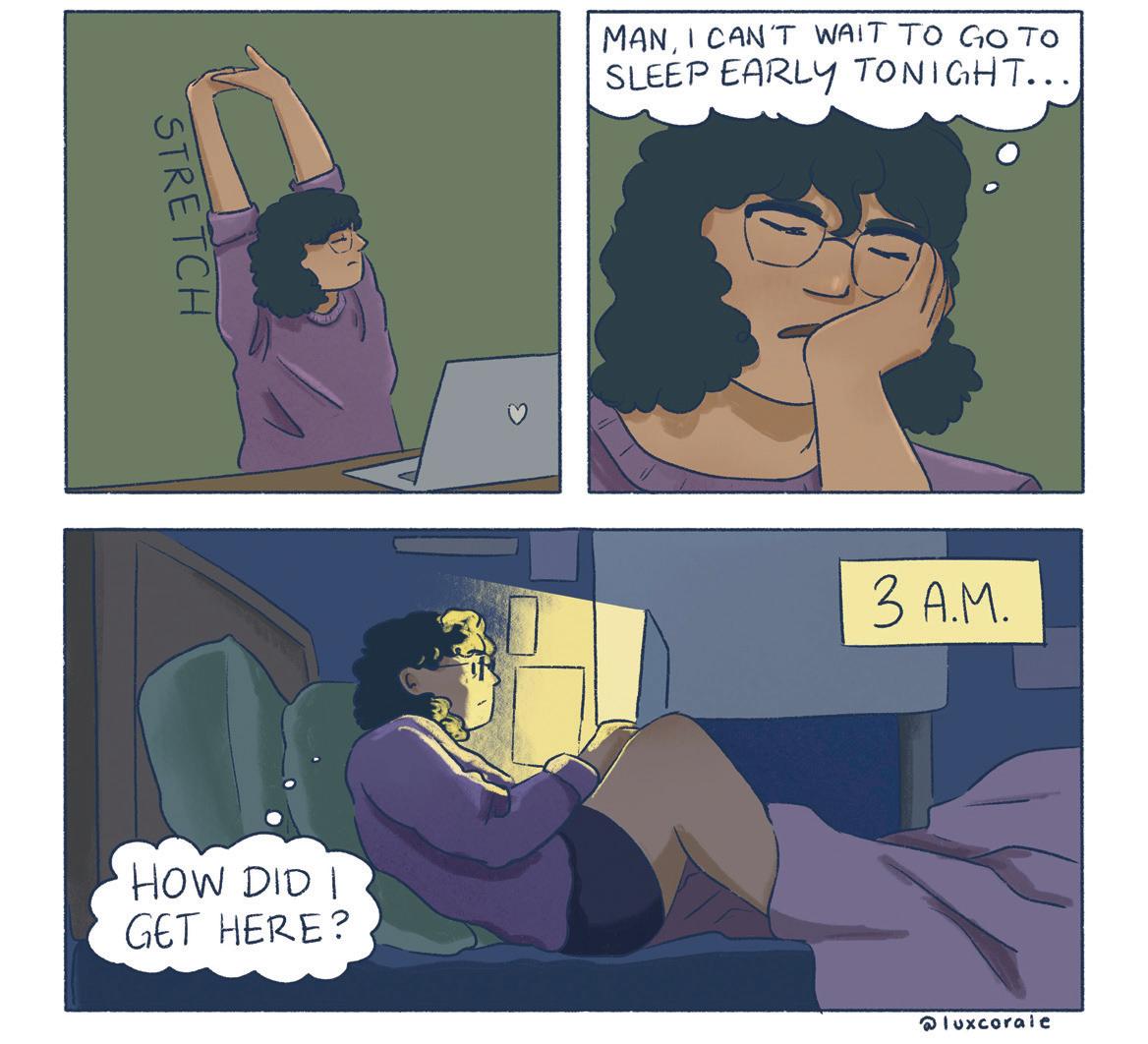
This may be harder to do in places like the library, especially when everyone goes there at night, but if we light enough candles, I’m sure it’ll be fine. A candlelit D.H. Hill Jr. Library would be so fun for Halloween.


the prices of food everywhere else, again, from the past year.
We all know the Wi-Fi on campus has been inconsistent as of recent.

Lately, with all the construction and confusion on campus, from the Wolfline shortages to the Google Drive restrictions, it seems like NC State has taken a step back in time, so why don’t we lean into the Victorian aesthetic.
Here are my recommendations going forward:
Obviously, the first step is to trash our laptops and bring back pen and paper. No more taking notes, doing assignments or working on exams online; it’s all analog again.
Also consider learning calligraphy, which makes writing much more efficient, and which will make your notes look formal and nice. Just make sure to find a quiet space to work so you don’t lose focus from all the errant construction noises.
While we’re at it, let’s also remove the printers. We’d still have those services at the library just in case your handwriting isn’t the best or you need to put out flyers, only now the price has increased by 1,000% and the cost is $15.
Next we’ll need to remove all modern lighting. I know this sounds inconvenient, but homework by candlelight is a must-add
This would also be very considerate for the University to help save on bills while it constructs the new Integrative Sciences Building. While electricity and Wi-Fi are nice, it would really help NC State out, especially since the University has not received any recent major grants.
Does the use of candlelight present some issues for rain at night? Yes, but in this case, simply stay in.
On the note of energy, we may have to minimize use of the dining halls. Don’t worry though, everyone will still be able to access the other on-campus dining options just as we have, incidentally, increased
Cars won’t do on our new campus either. They don’t really fit in this year anyway on account of all the road construction. We can bring back horse-drawn carriages. I only know of one horse that sometimes comes on campus, so we may have to carpool (carriage-pool?), but it should work out.
Of course, we’d keep the scooters, but their base price will also increase. It’s now $9 per minute and you still can’t ride it on sidewalks.
With all these changes, campus will feel more welcoming and open than ever before. Our applications will skyrocket and everyone will want to be a member of the Pack, even if the campus is already struggling to provide housing, affordable meals or transport for its current students.
TECHNICIANONLINE.COM 8 TECHNICIAN THURSDAY, OCTOBER 5, 2023 Opinion
Really Scary Max Alsop, Staff Cartoonist A third-year studying anthropology and paleontology Fall Jammin’ Avery Szakacs, Staff Cartoonist A third-year studying art and design
Late Night Binge Lucy Osborn, Staff Cartoonist A third-year studying art and design
Will LaMarche Staff Writer
Editor’s Note: This is a work of satire. It should not be taken seriously or applied literally.
Ten books to read this fall
If you’re looking for a new read this fall, we’ve got you covered. Here’s the ultimate guide to fall reading — including a diverse range of genres from nonfiction to thrillers — that will set the cozy and eerie ambience of the season.

“The Secret History” by Donna Tartt Goodreads rating: 4.18 stars
This modern classic dives into obsession, morality and mortality, and an air of dark academia envelops the whole story. If you consider yourself a “Dead Poets Society” lover, this should be next on your list.
Protagonist Richard Papen transfers to a prestigious college in New England and befriends a mysterious clique of classics students. He wants to become part of the crew, but they are a part of different world — one where they defy the rules of morality and the existence of those around them.
“Little Women” by Louisa May Alcott
Goodreads rating: 4.14 stars
Although you’ve likely seen the 2019 movie adaptation of “Little Women,” I strongly recommend you pick up the book and give it a read. It follows the March sisters as they grow into young women, experiencing the trials and tribulations of life along with them. Any historical fiction novel is delightful, but this book takes cozy and comforting to a new level.
“Twilight” by Stephanie Meyer
Goodreads rating: 3.64 stars
If you haven’t read or watched “Twilight” already, where
the heck have you been, loca? While the movies have a melancholy fall feel all on their own, the books are better written than they get credit for. What seems kitschy and awkward on screen is deeply emotional on the page; soon, you’ll wonder why you ever questioned the validity of a vampire-human-werewolf love triangle in the first place.
“Frankenstein” by Mary Shelley
Goodreads rating: 3.86 stars
Ah yes, the classic and captivating gothic novel about a scientist whose abandoned creation turns horribly wrong and becomes a monster. How could we not put this on the list? Reading this generationally-loved book will make the Frankenstein Halloween costumes pop out at you and make you look mysterious in a cafe this season.
“The Library at Mount Char” by Scott Hawkins Goodreads rating: 4.09 stars
Admittedly, I didn’t actually finish this book. Not because it was bad — it was just that scary.
Technically classified as horror-fantasy, this read was bizarre but brilliant. It follows six children of “God” who must solve his murder before his enemies steal the secrets of creation. If you want to read something that you have absolutely never read before, this is the book for you.
“The Guest” by Emma Cline Goodreads rating: 3.38 stars
This new thriller is an exceptional pick for fall. Set at summer’s end, it follows Alex, who is displaced in Long Island and desperate for someone to grasp onto for protection. The pace and stress of this book is enough to take your mind off your own tensions during this time of year.
“The October Country” by Ray Bradbury Goodreads rating: 4.13 stars
Its opening line, “The October Country … that country
where it is always turning late in the year. That country where the hills are fog and the rivers are mist; where noons go quickly, dusks and twilight linger, and midnights stay,” was enough to get me hooked.
An exquisite collection of 19 imaginative, macabre and psychological short stories, it’s a great choice to crack open at the start of the new season. Put down “Something Wicked This Way Comes” and pick up this underrated read.
“Trick Mirror: Reflections on Self-Delusion,” by Jia Tolentino Goodreads rating: 4.06 stars
This is a collection of absorbing memoir-esque essays that dive into self-delusion that shapes our lives and culture around us. This book is full of relevant topics and cultural criticism and will leave you thinking about it for days after finishing.
Tolentino is sharp and intellectual — a breath of fresh air perfect for someone looking for a non-fiction read this fall.
“A Deadly Education (The Scholomance #1)” by Naomi Novik Goodreads rating: 3.99 stars
“A Deadly Education” is what “The Atlas Six” wanted to be but couldn’t. Galadriel, the sufficiently feisty female protagonist, studies arcane magic in a school that tries to kill her every step of the way. It includes plenty of monsters, magic and dark academia atmosphere to tide you over with spooky vibes until Halloween night.
“An Enchantment of Ravens” by Margaret Rogerson
Goodreads rating: 3.65 stars
For those who want a fall fantasy book without the nightmares, “An Enchantment of Ravens” follows Isobel, a painter with talent so extraordinary it attracts the attention of the Autumn Fey prince. This book takes you on a journey through dreamy fall landscapes, majestic fairy lands and perilous fights that are so captivating you’ll forget all about your impending midterms.
TECHNICIANONLINE.COM TECHNICIAN 9 THURSDAY, OCTOBER 5, 2023 Culture
GRAPHIC BY EMILY VESPA
Amelia Russell Assistant News Editor & Sarah Hoffer Correspondent
A deeper dive on University Libraries’ LGBTQ Community Historical State Timeline
Emilia Rivadeneira Culture Editor
University Libraries’ LGBTQ Community Historical State Timeline is a collection of archives from the 1970s to 2000s focused on uncovering hidden narratives on campus.
Taylor Wolford, special collections librarian, said it’s important to represent LGBTQ+ history in University archives.
“It’s important … to make sure that community members have a say and are involved in how we describe and collect their materials for future generations to use to research,” Wolford said.
Gathering the documentation to make the timeline was a difficult task, primarily because prior to the ‘90s, the LGBTQ+ community on campus was underrepresented in University records.
“It’s very difficult to find any information about community members, faculty and student staff who were openly LGBTQ+ in the ‘60s, ‘70s, ‘80s,” Wolford said.
Virginia Ferris, lead librarian for outreach and engagement, said in building the timeline, librarians intentionally sought out records to represent LGBTQ+ history on campus — a
1978: First student group for gay and lesbian students on campus approved
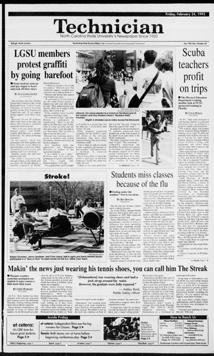
On Dec. 12, 1978, NC State approved the Gay and Lesbian Christian Alliance as an official student organization. Pastor Willie White served as the group’s first advisor.
1994: “Anti-hate” rally organized In response to rapes on campus, sexual harassment in classrooms and racist remarks from professors and anti-gay messages in the Free Expression Tunnel, student groups organized an anti-hate rally in Harris Field.

1996: BGLA established Bisexual, Gay, Lesbian and Allies was established in the fall of 1996, and may have replaced the Lesbian and Gay Student Union.
2003: Sexual orientation added to the University’s Equal Opportunity and Non-Discrimination Policy Statement
2011: “State Not Hate” rally held Following vandalism of the GLBT Center on Oct. 17, 2011, a rally was held in the Brickyard to support the LGBTQ+ community.
history that has always been present but has often gone undocumented.
“Our records only go back to really the ‘80s, maybe a couple earlier things mentioned in the Technician,” Ferris said. “It’s impossible that there wasn’t a community on campus before that, but the records just don’t reflect it.”
A possible reason for this lack of records is that prior to the formation of the LGBTQ Pride Center, originally named the GLBT Center, the lack of a formal infrastructure to support the LGBTQ+ community on campus impacted the collection of information.
“It’s a historically marginalized community,” Ferris said. “Written documents were not created and preserved from higher-level of power in the University. It was students who were forming organizations. … There was not a formal institutional infrastructure for supporting the LGBTQ community on campus until the 2000s.”
The documentation in the LGBTQ Community timeline provides a broad recollection highlighting both landmark events and the struggles for visibility and recognition on campus.
Here is a selection of records and documents from the LGBTQ Community Historical State Timeline:
1989: Lesbian and Gay Student Union formed
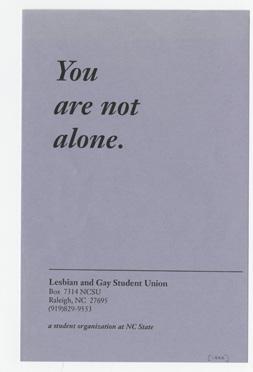
With the purpose of providing opportunities for education, fellowship, emotional support and more among gay, lesbian and straight students, faculty and staff, the Lesbian and Gay Student Union was a driving force for change on NC State campus.
1995: Barefoot Rally held
On Feb. 23, 1995, the Lesbian and Gay Student Union held a rally on the Brickyard to protest Free Expression Tunnel graffiti that had been painted over announcements for Gay, Lesbian and Bisexual Awareness Week.
2002: Student Senate Non-Discrimination Resolution Student Senate passed a resolution requesting the University add sexual orientation to its non-discrimination policy.
2008: GLBT Center opened
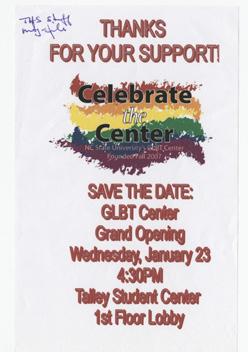
On Jan. 23, 2008, the GLBT Center officially became a department under the Office of Institutional Equity and Diversity. After the creation of the Pride Center, there was an increase in representation and visibility of LGBTQ+ histories and narratives overall that allowed for increased documentation.
2012: “Ides of March” protest held In response to an amendment to North Carolina’s constitution that legally banned gay marriage in the state, students and alumni marched from the Bell Tower to the Capital District.
View the complete timeline on the University Libraries website by scanning this QR code.

“The Pride Center opening, having a dedicated space and dedicated University funding and resources towards making a home, a physical space on campus for the LQBTQ+ community, that was a gamechanger for the campus history of the LGBTQ community,” Ferris said.
2021: First Annual PrideFest
Formerly known as Pride Walk, this annual celebration was first held in 2021 as a way for students to connect with allies and peers.

TECHNICIANONLINE.COM 10 TECHNICIAN THURSDAY, OCTOBER 5, 2023 Culture
Aces and Aros: A home for the asexual and aromantic community on campus
Emilia Rivadeneira Culture Editor
Aces and Aros, a student-led organization that supports asexual and aromantic students, is one of seven student organizations under the LGBTQ Pride Center umbrella. Its purpose is to provide a community space for asexual and/or aromantic people and allies on campus to learn more about their identities.
Anna Cross, a fourth-year studying sustainable materials and technology and current president of Aces and Aros, said the organization serves the needs for students who identify as asexual and/or aromantic and students who are questioning their identities.
“Asexuality and aromanticism is [a] spectrum, so we provide a home for all people within the spectrum,” Cross said. “And as well for questioning people who would like to attend meetings and learn more about the identities, perhaps to learn more about themselves.”
The club not only offers a space to explore identities, but also an opportunity for community building.
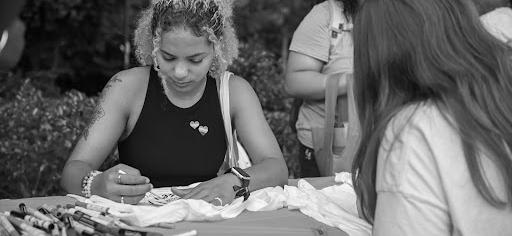
Grey Burns, a third-year in design studies and treasurer of Aces and Aros, said the organization also gives students the opportunity to build friendships and find community.
“It’s really easy when you’re just walking around to assume that nobody is like you,” Burns said. “It helps with the feeling alone bit and helps us realize that … there’s a community of us out there.”
Asexuality and aromanticism have long lived in the shadows, but the organization sheds light on these identities.
“Asexuality is known as the invisible sexuality because a lot of people don’t talk about it or even know about it,” Cross said. “So Aces and Aros shows people that we exist, we’re here and [that] there’s more asexual and aromantic people around than you may think.”
The organization hosts biweekly meetings at the Pride Center, with activities and discussions that give students questioning their sexuality the opportunity to learn more about the community through listening to others’ experiences.
“Lately, we’ve changed the structure [of the meetings] a little bit,” Burns said. “Our last meeting was a game night, … and we talked about ‘How [do] you find an aro/ace community outside of a college setting?’”
Jae Edwards, assistant director of the Pride Center, said the center is a conduit for LGBTQ+ student organizations and allows these groups to use its facilities so they don’t have to organize other resources.
“The important part is giving people the space to do what they need to do and be their authentic self,” Edwards said. With the beginning of LGBTQ+ History Month, it’s important to recognize the growth of LGBTQ+ student-led organizations that highlight specific sub-identities of the community, as these spaces become a hub for students to share their experiences and build connections with others.
“It’s helpful to have joint spaces because it helps community building in general,” Burns said. “But it’s helpful to have specific subsections in that community to be able to discuss specific topics.”

TECHNICIANONLINE.COM TECHNICIAN 11 THURSDAY, OCTOBER 5, 2023 Culture
Asexuality is known as the invisible sexuality because a lot of people don’t talk about it or even know about it. ... So Aces and Aros shows people that we exist, we’re here and [that] there’s more asexual and aromantic people around than you may think.
-Anna Cross
JERMAINE HUDSON/TECHNICIAN
Amira Gunther, a first-year studying biology, creates a shirt during PrideFest at Stafford Commons on Tuesday, Oct. 3, 2023. PrideFest is an annual celebration to recognize and honor the LGBTQ+ members of the Wolfpack.
MLB Pack Pros: Trea Turner’s resurgence and Patrick Bailey’s breakout
Colby Trotter Staff Writer


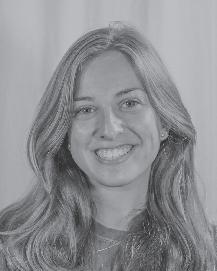
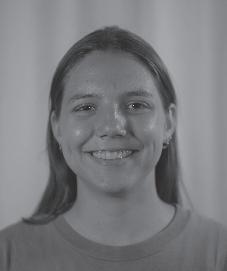
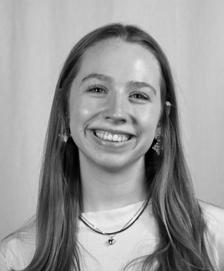

With the MLB playoffs beginning this week, another season of MLB Pack Pros has come to an end. From two players who tried to live up to their offseason paydays and two catchers who had very different seasons, let’s take a look at how the league’s four MLB Pack Pros performed this season.

Trea Turner: Philadelphia Phillies, Shortstop

The Philadelphia Phillies signed Turner to an 11-year, $300 million contract in hopes he’d be the missing piece on a team that lost in the World Series in 2022. The former Wolfpack shortstop came off a season where he recorded a career-high 100 RBIs, making him the most sought-after free agent in the league. His performance at the World Baseball Classic, where he hit five home runs in six games, also gave Phillies’ fans a lot of hope heading into the season.
The hope was short-lived as Turner had a rough start to the season, slashing just .247/.299./389 before the all-star game. As usual, Philly fans did not have much patience and started to boo Turner because he was not living up to his contract in their eyes. But everything changed Aug. 4 when Philadelphia decided to support Turner and give him a standing ovation.
Since that ovation, Turner flipped the script on his season and hit 16 home runs while driving in 42 runs. The Philadelphia shortstop has given a lot of credit to the fans for turning his season around.
Turner is the only Pack Pro to make the postseason in 2023, and the Phillies will heavily rely on him if they hope to win it all.
Carlos Rodón: New York Yankees, Left-Handed-Pitcher
Just like Turner, Rodón was coming off one of the best seasons of his career and cashed in, signing a six-year, $162 million deal with the New York Yankees. The former Wolfpack lefty was also viewed by the Yankees as a player who would help them get to the promised land. Many thought the addition of Rodón would solidify the Yankees as the best pitching team in baseball.
Unfortunately for Rodón, his debut in the pinstripes was put on hold — he didn’t make his first start until July 7 due to a left forearm strain. Injuries continued to nag Rodón throughout the season, not allowing him to get into a rhythm, leading to a career-worst 6.85 ERA.
The Rodón of old showed flashes throughout the season, with his best game occurring Sept. 12 against the Boston Red Sox. Across five innings, he recorded nine strikeouts with just one earned run. With a healthy off-season approaching, expect Rodón to have a comeback year in 2024.
Patrick Bailey: San Francisco Giants, Catcher
Ever since the retirement of legendary catcher Buster Posey, the Giants have been looking for the catcher of the future, and they found it with Bailey. The former 13th overall pick was called up May 19 and quickly rose up the ranks of catchers.
Since his call-up, Bailey has been recognized for his elite defensive ability. He has the second-fastest pop time in the league at 1.87 seconds, making it hard for baserunners to steal against him. The former Wolfpack star is also already considered one of the best framing catchers in baseball, giving his pitchers a bigger strike zone to work with.
While Bailey has cemented himself as a defensive stalwart behind the plate, he still has some work to do in the batter’s box. He is slashing a below-average .235/.285/.359 but has had some clutch at-bats in his first season. His most memorable hit of the season was an extra-inning walk-off home run against the Texas Rangers.
The first-year pro is just getting started and is already one of the best young catchers in the MLB.
Andrew Knizner: St. Louis Cardinals, Catcher
With the retirement of Cardinals legend, catcher Yadier Molina, at the end of the 2022 season, there was hope for Knizner that he would be the starting catcher in 2023. He didn’t prove enough to the Cardinals, leading them to sign veteran catcher Wilson Contreras in the offseason.
Knizner ended up as the backup catcher in St. Louis for another season. It wasn’t all doom and gloom for the Pack Pro, however, as he enjoyed the best-hitting season of his career, even with limited action. Knizer launched a careerhigh 10 home runs along with a career-high 31 RBIs.
Although these aren’t eye-popping numbers, Knizner has shown improvement, and that could go a long way in extending his professional career.
TECHNICIANONLINE.COM 12 TECHNICIAN THURSDAY, OCTOBER 5, 2023 Sports
No. 3 Texas No. 3 Texas No. 3 Texas No. 3 Texas No. 3 Texas No. 3 Texas Boston College Boston College Boston College Boston College Army Army No. 23 LSU No. 23 LSU No. 23 LSU No. 23 LSU No. 21 Missouri No. 21 Missouri NC State NC State NC State NC State NC State Marshall Iowa Iowa Iowa Purdue Purdue Purdue Clemson Clemson Clemson Clemson Clemson Wake Forest No. 10 Notre Dame No. 10 Notre Dame No. 10 Notre Dame No. 10 Notre Dame No. 10 Notre Dame No. 25 Louisville Jameson Wolf Editor-in-Chief Record: 16-19 Jenna Cuniowski Sports Editor Record: 26-9 Emily Vespa Managing Editor Record: 21-14 Noah Teague Asst. Sports Editor Record: 21-14 Erin Ferrare Asst. Sports Editor Record: 21-14 Ethan Bakogiannis Editor-in-Chief Record: 22-13 No. 12 Oklahoma at No. 3 Texas No. 23 LSU at No. 21 Missouri Marshall at NC State Purdue at Iowa Wake Forest at Clemson No. 10 Notre Dame at No. 25 Louisville Boston College at Army
RYAN PARRY/TECHNICIAN
In this archive photo taken on Feb. 21, 2013, shortstop Trea Turner throws to first base for an out against Villanova at Doak Field at Dail Park. The Philadelphia Phillies signed Trea Turner to an 11-year, $300 million contract.
NC State volleyball notches historic win over No. 5 Louisville
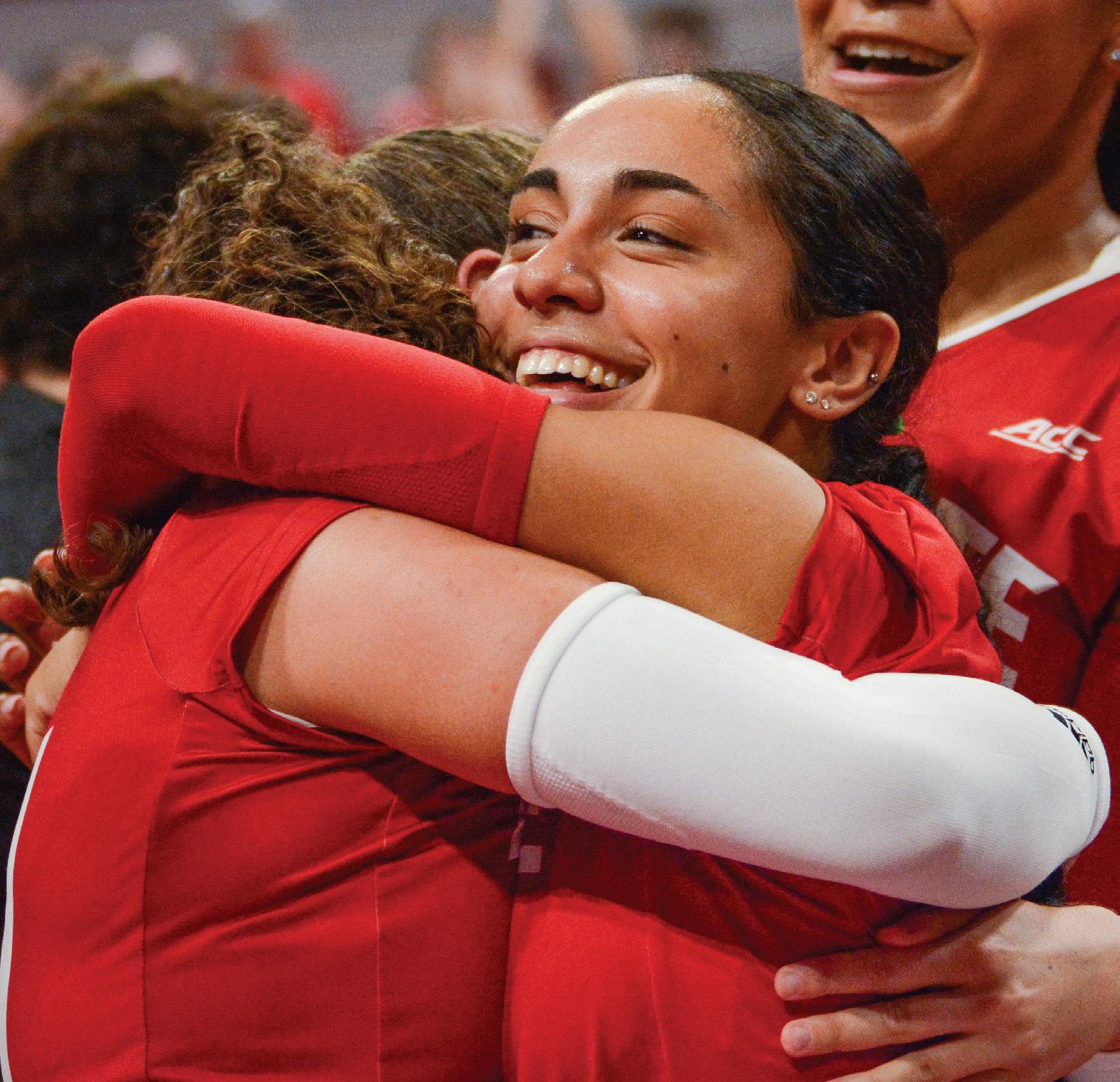 Griffin Cunningham Staff Writer
Griffin Cunningham Staff Writer




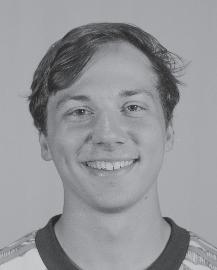

NC State volleyball toppled No. 5 Louisville 3-1 on Sunday, Oct. 1 to collect its only win over a top-five opponent in program history.
The Wolfpack (13-2, 3-1 ACC) handed the Cardinals (12-2, 3-1 ACC) its first ACC loss of the season as it claimed a 3-1 victory by winning sets one, two and four. Standout performances by junior opposite hitter Amanda Rice and sophomore outside hitter Ava Brizard, who combined for a total of 30 kills, were instrumental in the monumental win. The energy was palpable as Wolfpack fans filled Reynolds Coliseum for the highly anticipated matchup, creating an unforgettable atmosphere for both players and spectators alike.
“It was just electric; I have never seen that many fans in here before,” Rice said. “At this rate we should just be a volleyball school.”
The first set consisted of an early backand-forth battle between the two teams. Louisville struggled with errors, allowing NC State to find its rhythm with a strong defensive effort. Rice, typically not known for recording digs, displayed exceptional defensive skills to keep a possession alive until Brizard ended it with a kill.
NC State took the first set by a score of 25-19 after redshirt junior outside hitter Madison Williams sealed the set with a kill. Williams, along with sophomore outside hitter Courtney Bryant, made substantial contributions to the win, displaying a balanced mix of both defense and offense.
“[Bryant and Williams have] gone through a lot — injuries and trying to find their self-confidence,” said head coach Luka Slabe. “They showed up tonight and we’re proud of them.”
Louisville raised the stakes in the second, keeping the gap to just one point for the majority of the set. However, NC State remained resilient, frustrating the top-ranked team as the Cardinals struggled to break away. Rice was exceptional towards the end of the set, recording three of the final five points for NC State to lead the team to a 25-21 win.
The Wolfpack narrowly missed a sweep in the third set, which proved to be a challenging battle as Louisville fought tooth-and-nail to stay in the match. NC State faced deficits of up to five points during the set, but once the starters returned to the floor, the Pack clawed its way back in. Brizard, Bryant and Rice combined for six points in the final moments of the set but could only come within one, allowing Louisville to collect its only set victory of the day by a score of 25-22.
Despite losing the third set, the Wolfpack maintained its momentum, leading to a dominant 25-15 victory in the fourth set to seal the win. In this set, NC State outperformed Louisville in all facets of the game, with nothing the Cardinals threw at it proving effective.
“We’ve been working for this moment,” Rice said. “I know Louisville’s a big name in the volleyball world, but NC State should be [too].”
The Wolfpack is fully aware of its success and what it signifies not only for the program but also for its opponents.
“[The] target is on our back,” Slabe said. “Teams are going to come after us; we’ve got to be ready.”
Next up, the Wolfpack travels to Florida for matches against Miami at 7 p.m. Friday, Oct. 6 and Florida State at 1 p.m. Sunday, Oct. 8.
TECHNICIANONLINE.COM TECHNICIAN 13 THURSDAY, OCTOBER 5, 2023 Sports No. 3 Texas No. 3 Texas No. 3 Texas No. 3 Texas No. 3 Texas No. 3 Texas Wake Forest
24-11
Ethan McDowell The Wolfpacker Record:
23-12 Koen
Rodabaugh Focused Editor Record:
Joe Giglio OVIES + GIGLIO Record:
27-8
Joe Ovies OVIES + GIGLIO Record: 19-16 Kate Denning News Editor Record:
23-12
Boston College Boston College Boston College Boston College No. 21 Missouri NC State NC State NC State NC State NC State Iowa Iowa Iowa Iowa Iowa Iowa No. 10 Notre Dame No. 10 Notre Dame No. 10 Notre Dame No. 10 Notre Dame No. 10 Notre Dame No. 10 Notre Dame No. 23 LSU No. 23 LSU No. 23 LSU No. 23 LSU No. 23 LSU Clemson Clemson Clemson Clemson Clemson Army Army Marshall
Cory Smith Pack Pride Record:
23-12
ANNA HANSEN/TECHNICIAN
Sophomore libero Sydney Daniels hugs her teammate after the team’s victory against Louisville in Reynolds Coliseum on Sunday, Oct. 1, 2023. The Wolfpack defeated the Cardinals 3-1.
It was just electric; I have never seen that many fans in here before. ... At this rate we should just be a volleyball school.
- Amanda Rice
Queen of the Court: Kristen McDaniel’s journey to stardom with NC State volleyball
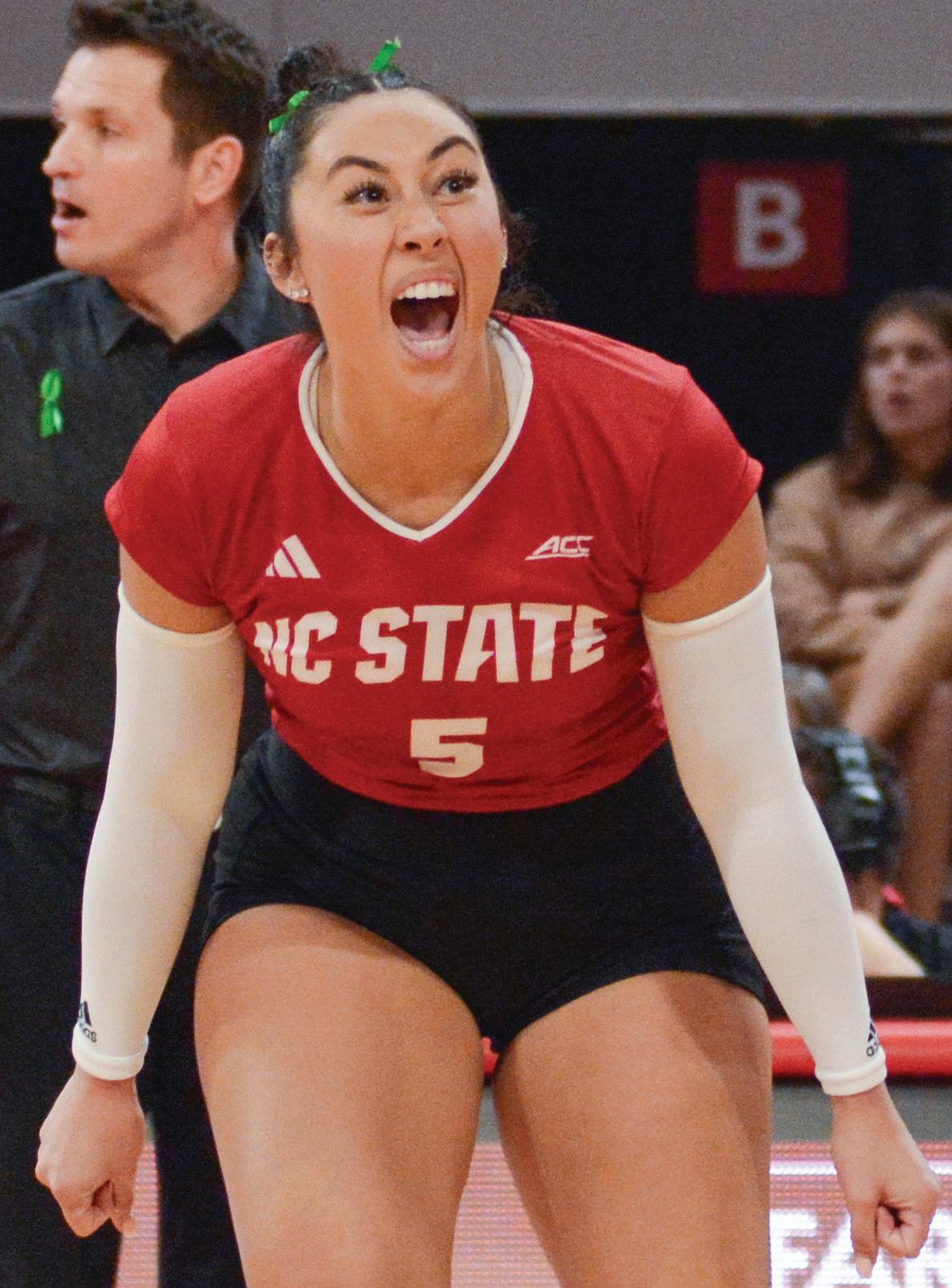 Erin Ferrare Assistant Sports Editor
Erin Ferrare Assistant Sports Editor
As lights illuminate Reynolds Coliseum’s Valvano Arena, graduate setter Kristen McDaniel takes the stage in her fifth and final season at NC State. Since joining the Wolfpack in 2019, McDaniel has lit up any hardwood floor she steps on, showing exceptional defensive and offensive talent.
Hailing from Mililani, Hawaii, McDaniel started her career in the red-and-white as a defensive specialist who also entered games as a setter. She recorded 128 digs as a defensive specialist in 2019 and reached a thencareer high 13 digs against Georgia Tech.
“It definitely was hard at first, just with the culture shock,” McDaniel said. “ I’m sure every person from Hawaii can say that; it’s a very different culture that we grow up in. The lifestyle is different, everything there is very chill and slow paced. Coming into college athletics where everything is fast, you have to adapt very quickly.”
While she wasn’t a starter her freshman year, McDaniel made her mark on NC State volleyball in a monumental way. She opened her collegiate setting career with 22 assists against Kansas State, the most assists for an NC State setter in a collegiate debut since Aug. 24, 2007. Her work ethic and prominence on the front court earned her the starting setting position in 2020, starting all 17 matches and ranking fourth in the ACC with 602 assists by the end of the season.
“It’s hard to say in what areas she did not impact our program,” said head coach Luka Slabe. “She went with us from day one, through the transition from the previous staff to probably thinking, ‘Who is this guy?’ She’s done it all through all the ups and downs of change. She’s been supportive throughout and she’s been growing up … We couldn’t be more thankful to have her.”
The spring of 2020 was the first time Slabe got to coach the team after he was hired in February 2020. After two years with USA Volleyball, Slabe secured his head coaching
chance with a budding program at NC State, and McDaniel was a key part of his team from the very start.
Throughout her junior and senior seasons,
McDaniel was consistently one of the best players on the court. She led the team with 811 assists and 22 service aces during her junior year and played in all 29 matches, and
she appeared in 100 sets her senior season. When the time came to decide what happens after senior year, McDaniel made the decision to stay at NC State for her fifth and final season.
“She was a little baby, and now she’s not a little baby anymore, you know?” Slabe said. “I’ve been fortunate enough to see that growth. In four years, you will see changes. Yeah, they’re just different human beings.”
On the court, becoming a skilled player requires juggling many tasks simultaneously, and through her four years with the red-and-white, McDaniel’s mastered the madness of volleyball. You need to know where the ball is at all times, the setter’s offensive plans and call out who’s picking up the blocker coverage — all while tracking the other team’s movements. McDaniel is one of the few players that can do all of these things, making it all seem effortless.
In the world of the transfer portal, it’s becoming more common for athletes to transfer from school to school for their graduate season. In 2022, the transfer portal recorded an increase of student-athlete entrants compared to the 2021 totals, with 20,911 students entering in the past year alone. Of those 2022 numbers, 30% of the student-athletes were graduate students.

“The reason why I came here was because I love the people and the program,” McDaniel said. “I just want to have as much fun as I can this last year and cherish every moment I have with the team. Just trying to make sure I continue to lead by example and leave the girls behind me with how special this program is. No matter what we’ve been through, we can all get through it.”
With the 2023 season already underway, it is safe to say McDaniel and the Wolfpack have already left a strong mark on the court. With a 13-2 record, including a 3-1 record in the ACC, and a historic upset against No. 5 Louisville, the red-and-white is on a roll with no end in sight — all with McDaniel leading the charge.
TECHNICIANONLINE.COM 14 TECHNICIAN THURSDAY, OCTOBER 5, 2023 Sports
ANNA HANSEN/TECHNICIAN
Graduate setter Kristen McDaniel yells in celebration of a point during the match against Louisville in Reynolds Coliseum on Sunday, Oct. 1, 2023. McDaniel led the team with 28 assists. The Wolfpack beat the Cardinals 3-1.
NC State football looks to rebound against Marshall, Morris set to star
NC State football will take the field against the Marshall Thundering Herd on Saturday, Oct. 7 at Carter-Finley Stadium after losing to the No. 25 Louisville Cardinals last week.
This weekend’s matchup will mark the sixth meeting between these two teams. The Wolfpack currently holds a 5-0 lead in the all-time series with the most recent matchup being a 37-20 victory at Marshall during the 2018 season.
Under the leadership of head coach Charles Huff, the Herd has made waves over the course of the past few seasons with multiple impressive victories. Last season, it took down Notre Dame on the road and defeated Appalachian State in a close game. Marshall finished the 2022 season with a 9-4 record.
So far this season, Huff and the Herd are off to an impressive 4-0 start. With wins against East Carolina and Virginia Tech, Marshall has shown its ability to compete with teams from larger conferences.
So far, the team has improved on the offensive side of the ball, averaging 29.25 points per game compared to 24.46 last sea son. On the defensive end, the Thundering Herd allows an average of 20.5 points per game, which is slightly more than last sea son in which it allowed a staggeringly low 16 points per contest.
The Marshall defense should prove to be a formidable opponent for the Pack this week end. In terms of passing defense, the unit ranks second-best in the country by only allowing 142.8 yards through the air per game. It has benefitted from the presence of defensive back Micah Abraham, who leads the team with two interceptions in 2023, both at East Carolina.

In addition to the Herd’s strong defense, the red-and-white’s offense will be under significant pressure to perform well due to the change at quarterback this week. Head coach Dave Doeren named sophomore quarterback MJ Morris the starter over graduate signal-caller Brennan Armstrong.
Currently, the Wolfpack’s passing game leaves much to be desired. The unit has struggled significantly so far, averaging just 194.2 yards per game. In order to amend this issue, NC State will not only turn to Morris but to the receivers such as freshman Kevin Concepcion and sophomore Terrell Timmons, Jr., who have both shown prom ise this season.

Meanwhile, NC State will look to at tack the Herd’s run defense. The red-andwhite’s running game has not been able to find production outside of Armstrong. The
ground per game. With the presence of a strong linebacking core and defensive line, NC State has been successful in making the opposing team more one-dimensional. Last week against Louisville, the red-andwhite only allowed 20 yards on the ground. Graduate linebacker Payton Wilson and redshirt sophomore safety Sean Brown will look to replicate their performances from last week in which both tallied more than eight tackles.
After a rather frustrating game last week against Louisville, the Pack will look to flip the script against a dangerous Marshall squad. The addition of Morris under center may help guide the team to a win in its last non-conference game of the season. Kickoff against the Thundering Herd is slated for 2:00 p.m. on Saturday, Oct. 7 at Carter-Finley Stadium. The game will be televised on the CW Network.
Graduate linebacker Payton Wilson tackles the Cardinals quarterback during the Wolfpack’s home football game against the Louisville Cardinals at Carter-Finley Stadium on Friday, Sept. 29, 2023. Wilson had 10 total tackles and two sacks including one strip sack. The Cardinals beat the Wolfpack 13-10.
TECHNICIANONLINE.COM TECHNICIAN 15 THURSDAY, OCTOBER 5, 2023 Sports
Gavin Gallimore Staff Writer
GRIFFIN BRYANT/TECHNICIAN
GRIFFIN BRYANT/TECHNICIAN
In this file photo taken Sept. 29, 2023, senior defensive end Savion Jackson celebrates a defensive stop during the Wolfpack’s home football game against the Louisville Cardinals at Carter-Finley Stadium. This week, the Wolfpack prepare to take on the Marshall Thundering Herd in Carter-Finley Stadium.
FOOTBALL
See page 15








































 Griffin Cunningham Staff Writer
Griffin Cunningham Staff Writer






 Erin Ferrare Assistant Sports Editor
Erin Ferrare Assistant Sports Editor



